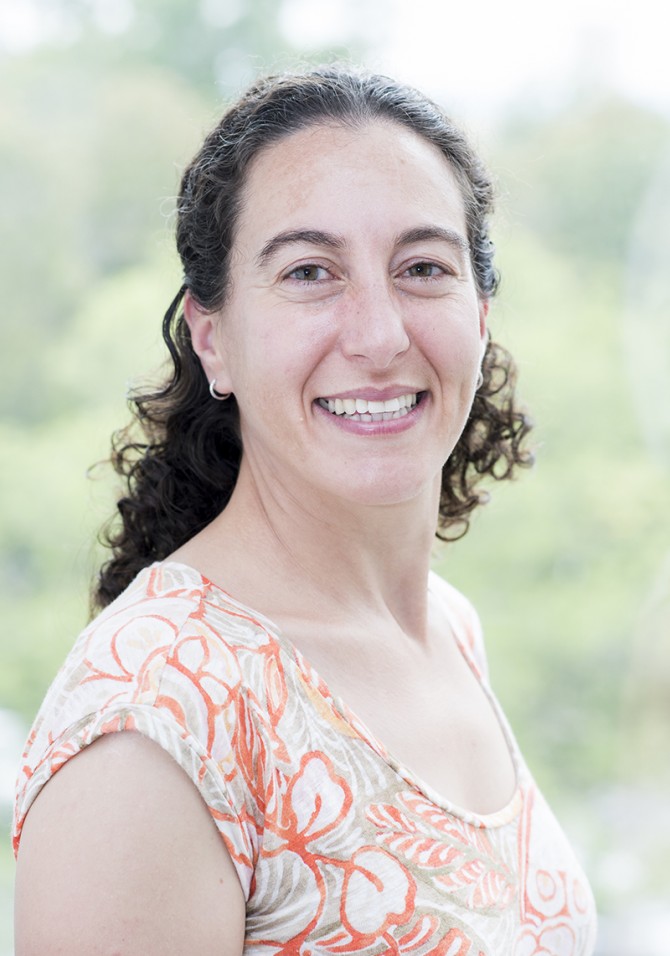Four on faculty receive NIH high-risk, high-reward awards
By Tom Fleischman
Three assistant professors – whose work explores horizontal gene transfer, precision monitoring of solid-organ transplants, and how facial recognition is encoded in a genome – have won National Institutes of Health Director’s New Innovator Awards. Also, a Weill Cornell Medicine doctor and renowned neuro-oncologist from Weill Cornell Medicine and NewYork-Presbyterian has received an NIH Director’s Pioneer Award. The NIH announced the awards Oct. 5.
The assistant professors – Ilana Brito and Iwijn De Vlaminck of the Meinig School of Biomedical Engineering, and Michael Sheehan of the Department of Neurobiology and Behavior in the College of Agriculture and Life Sciences – are among 55 winners nationwide, all early career researchers. Each winner will receive $1.5 million to support five years of research.
Brito’s project aims to examine the scope and dynamics of horizontal gene transfer, or HGT, by developing computational simulations and experimental methods for detecting it.
“It’s a special honor to receive the New Innovator Award,” Brito said. “Most of all, it’s a strong vote of confidence for a set of high-risk, high-reward initiatives in the lab. We’ll be using the award to develop new sequencing technologies and computational algorithms.”
Brito noted that basic facts about the frequency of HGT in the human gut microbiome are unknown. Her lab will test how certain perturbations to our microbiomes can result in the mobilization of transferrable genetic elements. Underlying this research is the broader goal of understanding how antibiotic resistance genes are spread on these transferable genetic elements.
The De Vlaminck lab focuses on the development of single-molecule and single-cell experimentation that can be applied to diagnostic medicine.
“The award funding will allow us to pursue new precision measurements for the monitoring of infection and immune-related complications,” De Vlaminck said. “Unfortunately, these complications occur frequently after transplantation and limit the long-term benefits of solid-organ transplantation.”
Specifically, De Vlaminck and his group, in collaboration with the team of Dr. Manikkam Suthanthiran at Weill Cornell Medicine and NewYork Presbyterian, will explore radically new precision-medicine approaches to kidney transplant monitoring. Each year, approximately 15,000 individuals receive a kidney transplant.
Currently, diagnosis of organ rejection requires an invasive needle biopsy, and diagnosis of infections is a challenge because clinicians are limited to testing one pathogen at a time. The De Vlaminck lab aims to invent and apply ultra-high-resolution genomic tests to dissect the complex molecular and cellular heterogeneity associated with certain post-transplant complications.
Sheehan has been studying the recently evolved facial-recognition abilities of the paper wasp. Unlike most insects, there is much variability in the facial markings of individuals in the species, and studying the paper wasp’s ability to recognize faces will begin to address fundamental questions at the nexus of genomics, neuroscience and behavior.
“This is game-changing,” Sheehan said of the award. “Paper wasps provide a kind of launching pad to begin examining sophisticated questions about social behavior and how that works at the neural-genomic interface. That’s the exciting part that I think we’ll be able to push forward dramatically with this award.”
Sheehan noted that Liz Tibbetts, Ph.D. ’03, professor of ecology and evolutionary biology at the University of Michigan, discovered the paper wasp’s ability to recognize individual faces while doing her doctoral work at Cornell. Tibbetts was Sheehan’s Ph.D. adviser at Michigan.
Dr. Howard Fine, Louis and Gertrude Feil Professor of Medicine at Weill Cornell Medicine and associate director for translational research at the institution’s Sandra and Edward Meyer Cancer Center, is one of 12 researchers nationwide to receive a NIH Director’s Pioneer Award. The award – $1.2 million annually for five years – supports scientists at all stages of their careers who are developing pioneering approaches to major challenges in biomedical and behavioral research.
Fine and his colleagues use advanced stem cell techniques to grow large clusters of functional and interconnected human brain cells, called cerebral organoids, in the laboratory to examine how individual patients’ gliomas (tumors that start in the brain or spine) grow and respond to therapies within a realistic biological environment.
The award will support Fine’s innovative approach to modeling deadly brain cancers in the laboratory – an approach that could be crucial for the development of effective therapies.
Other winners of New Innovator Awards include alumni Sarah Calve ’00, assistant professor of biomedical engineering at Purdue University; Evan Macosko, M.D. ’10, assistant professor of psychiatry at Harvard Medical School; and Priya Rajasethupathy ’04, assistant professor in the Laboratory of Neural Dynamics and Cognition at Rockefeller University.
The NIH Director’s New Innovator and Pioneer awards are part of the NIH’s High-Risk, High-Reward Research program, which support exceptionally creative investigators who propose innovative, high-impact projects. The program accelerates scientific discovery by supporting high-risk research proposals that may not fare well in the traditional peer-review process, despite their potential to advance the field.
Media Contact
Get Cornell news delivered right to your inbox.
Subscribe


